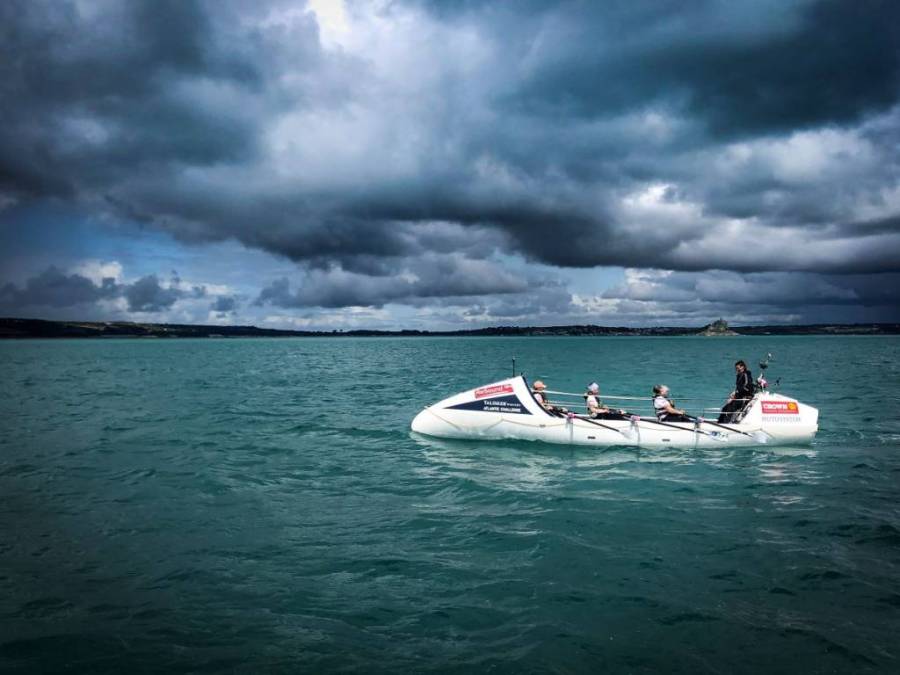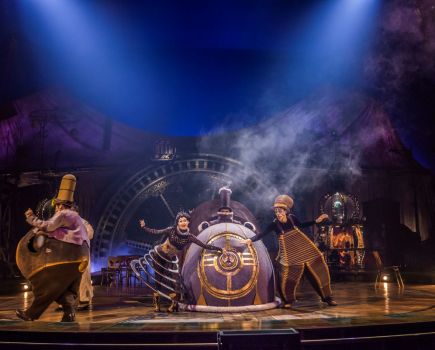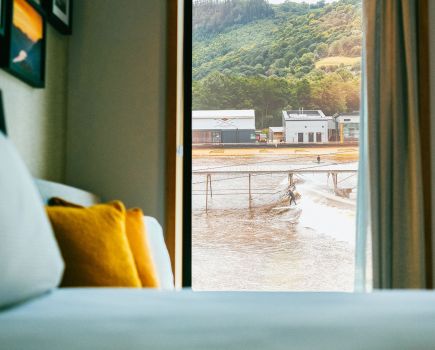Looking for a challenge to mark her 60th birthday, Mo O’Brien, 60, became the first deaf person to row the Atlantic. Mo lives in St Just, Cornwall, where she works as a pharmacy dispenser.
By Kim Willis.
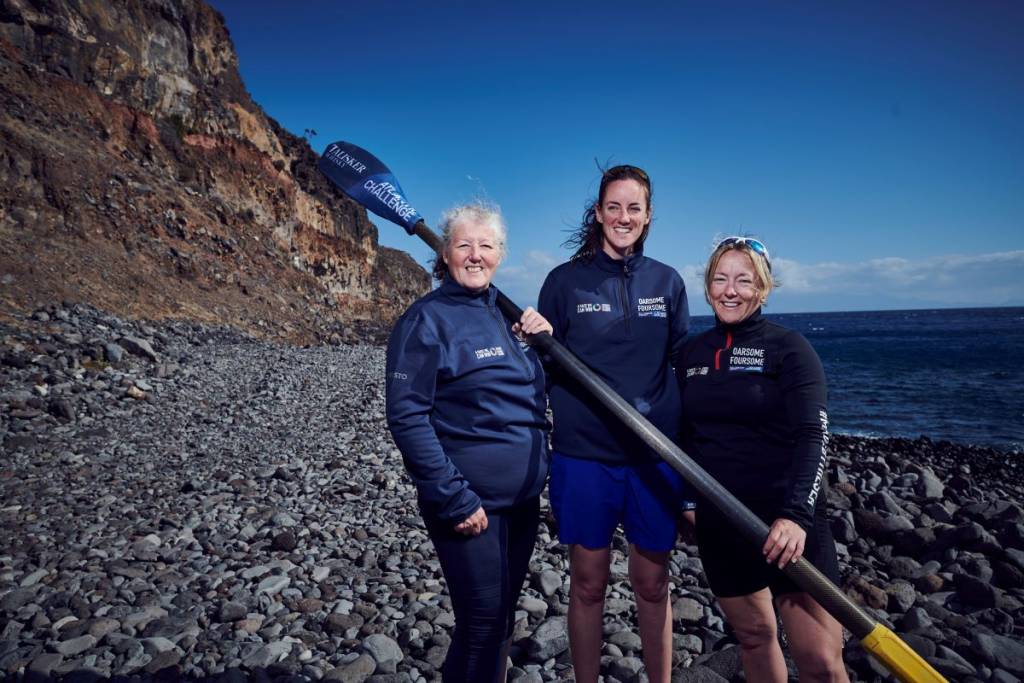
Mo, Bird and Claire (left to right)
In the middle of the night in the Atlantic Ocean, it looks as if someone has thrown glitter all over the sky. As we rowed 3000 miles from La Gomera in the Canary Islands to Antigua, it was a privilege to see a sky so unaffected by light pollution.
With my 60th birthday approaching, I wanted to set myself a phenomenal challenge. Rowing the Atlantic Ocean felt suitably epic and when my daughter, Bird, 32, said she’d accompany me, I knew it would be incredible. Bird’s friend Claire Allinson, 45, came on board and we started looking for sponsors.
We approached GN Hearing, a hearing aid brand, because I’ve had hearing loss my whole life. They were incredible, offering to sponsor us and give me a ReSound high performance hearing aid.
We set off on the December 12, 2019, taking part in the Talisker Whisky Challenge.
The Adventure Begins
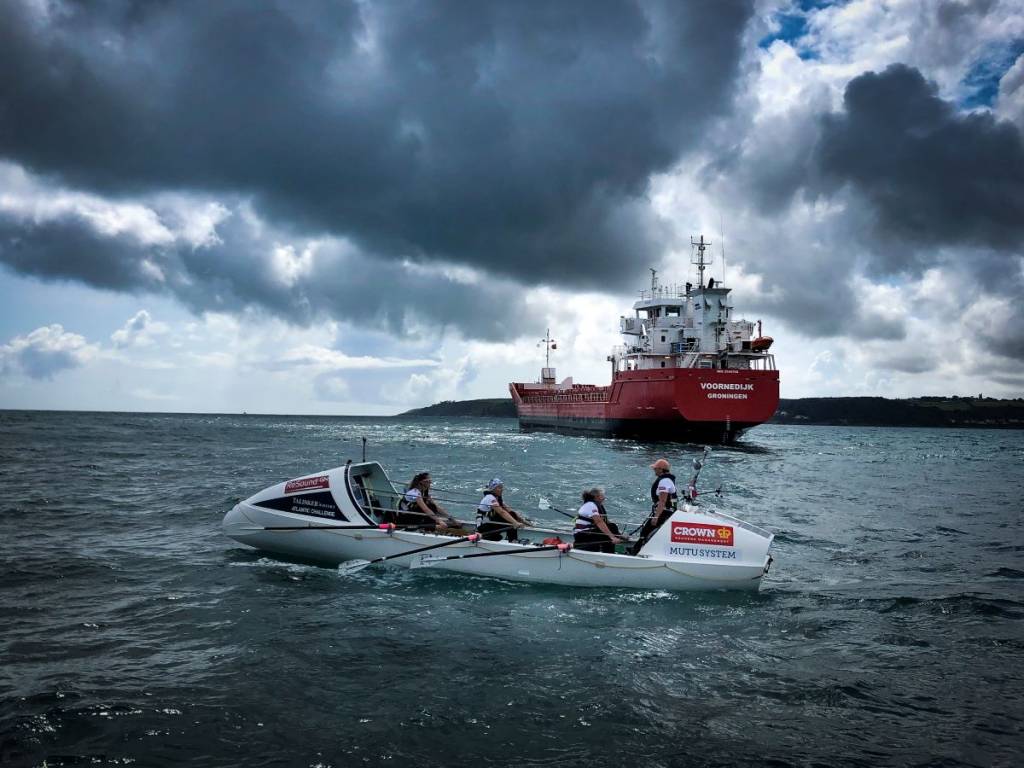
Training session in Cornwall (Photo credit: ReSound)
The first night was the scariest as we entered a massive storm. Bird and I were on deck but it was too rough to row so we huddled as waves splashed over us. We’d never experienced anything like it in training and it was shocking.
We soon got into a rhythm. I loved the sunrise shift, rowing as the sun broke through the horizon. We’d take it in turns to row in two hour shifts and we had chores and duties too.
Sleep deprivation was the biggest challenge. Sometimes, I’d find myself asleep at the oar, rowing in my sleep. We could not have overestimated how emotionally exhausted we’d feel. I wanted to cry over the smallest thing and I’m not usually like that.
There are layers of stress in an event like this and the ocean really strips you bare. Deafness is particularly challenging at sea, as it can prevent you from hearing instructions properly or confuse your sense of space and direction. I usually rely on lip reading as well as hearing aids but with someone rowing in front or behind me, I couldn’t.
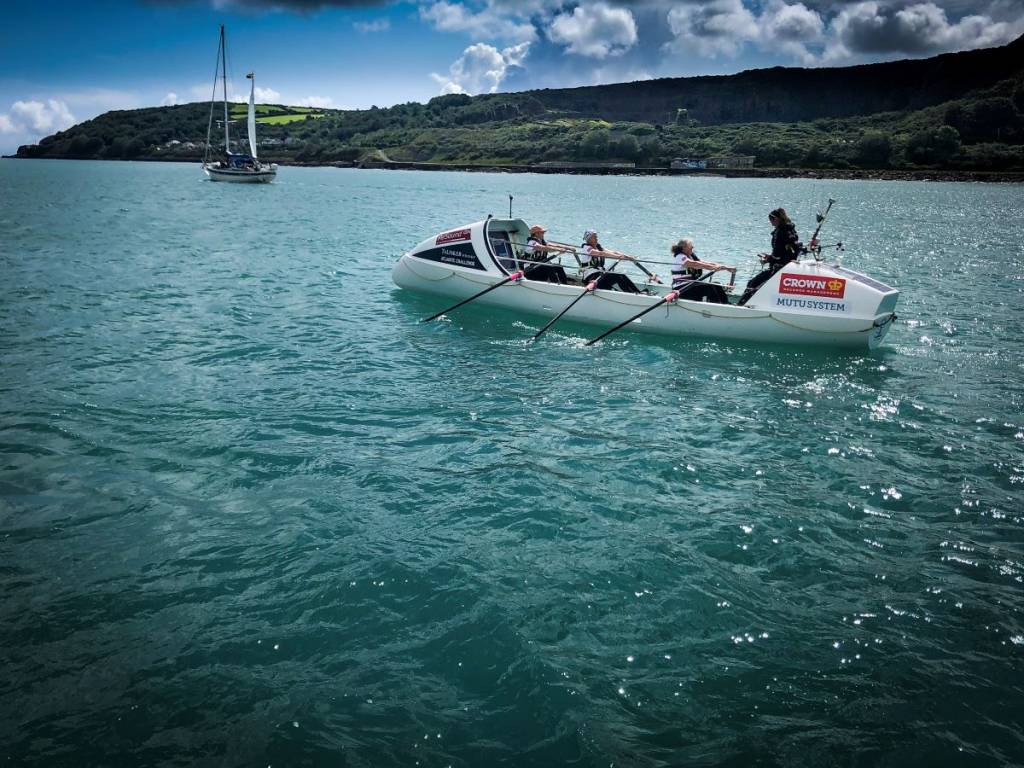
The team training hard in Cornwall (Photo credit: ReSound)
With a ReSound hearing aid and a mini microphone that Claire and Bird wore to amplify their voices, I didn’t struggle. The hearing aid was paired with an app on my phone, which meant I could fine tune and eliminate certain sounds, like the wind and waves, while turning up Claire and Bird’s voices.
At one point I had ear ache so didn’t wear the hearing aids and it hit me just how vital they had been. I couldn’t join in the conversation and it was a safety issue too. I wouldn’t have been able to hear Bird and Claire shout warnings or act quickly if needed.
Unforgettable memories
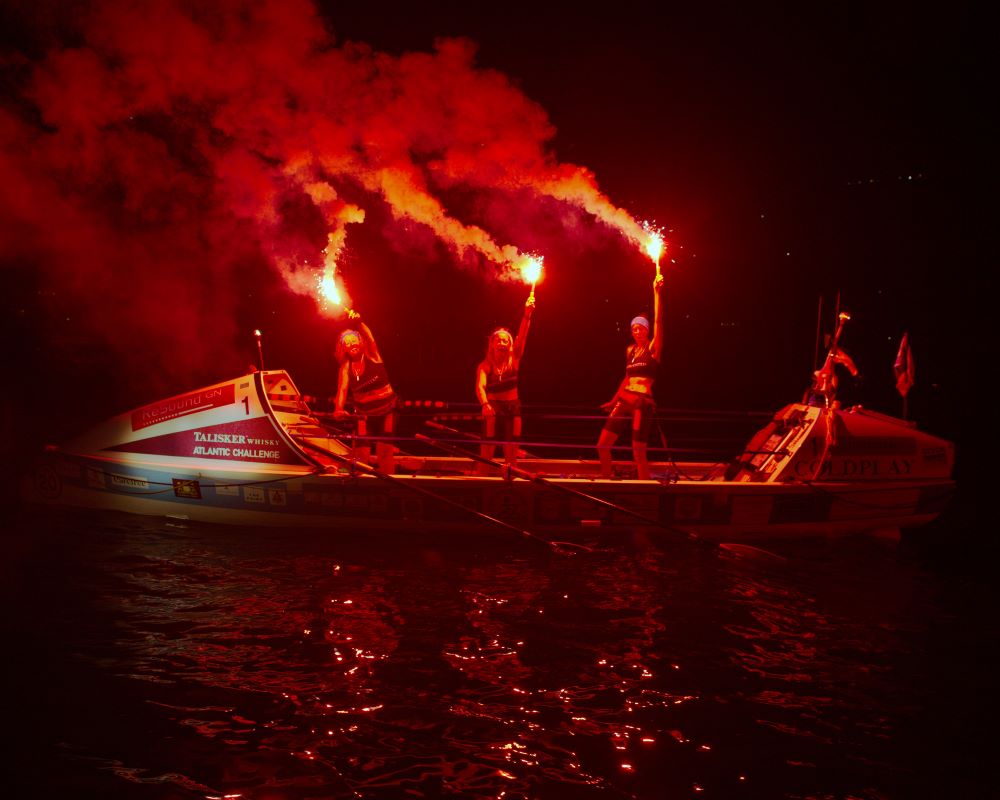
Taken just after the trio crossed the finish line of the challenge in Antigua
There were so many moments I’ll never forget. We were accompanied by an orca, dolphins and turtles. There were times when the weather was rough and the waves were huge, but other times, the sea was calm, clear and magnificent.
On Christmas Day, we briefly stopped rowing to eat some ceremonial mince pies. I felt so lucky to be sharing such a wild adventure with my daughter and Claire fitted perfectly into our dynamic.
On January 31 we arrived in Antigua, finishing 24th and breaking the record to become the fastest female trio, completing the race in 49 days, 13 hours and 49 minutes. As the first deaf person to row the Atlantic, I’ve made history and I hope I inspire others who are hard of hearing.
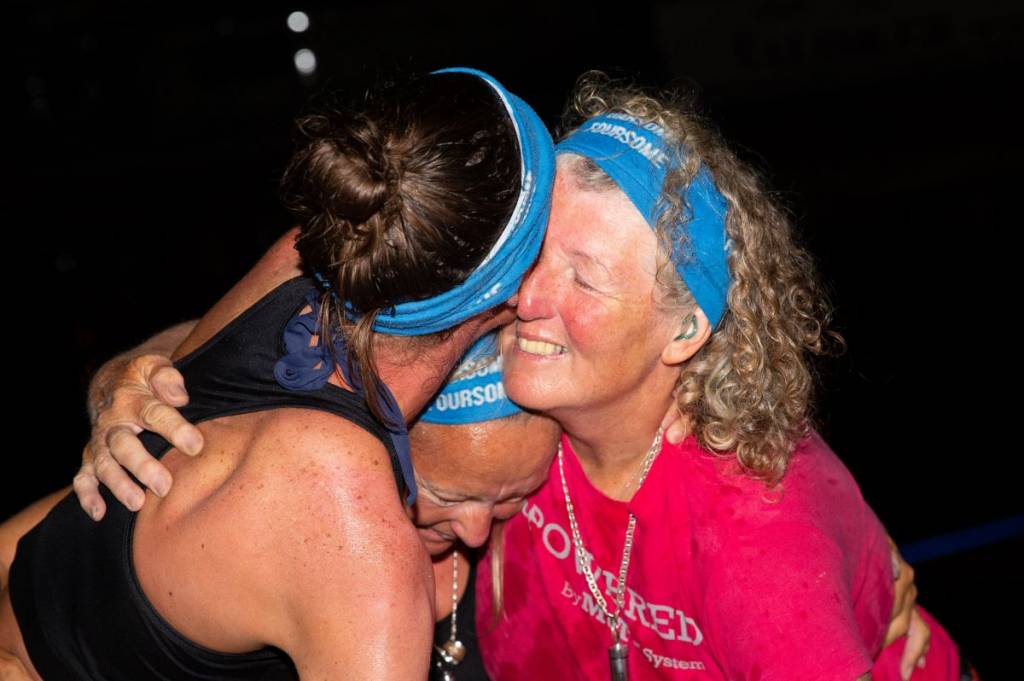
The team celebrating their success
Hearing loss has held me back from so much in life. From the first day of school, I’d hang back and, to a degree, I’ve felt like that throughout adulthood. At times, I’d feel more isolated in a crowd than I did alone. I didn’t like asking people to repeat themselves because I felt like a nuisance, so I’d keep myself to myself.
Hearing aids have been a game changer because I can take part in conversations and feel involved. I feel like I can do anything now. Next, I’m hoping to cycle from London to Amsterdam and I’d like to row the Pacific Ocean. I don’t have to hang back anymore so whatever opportunity presents itself, I know I can say yes!
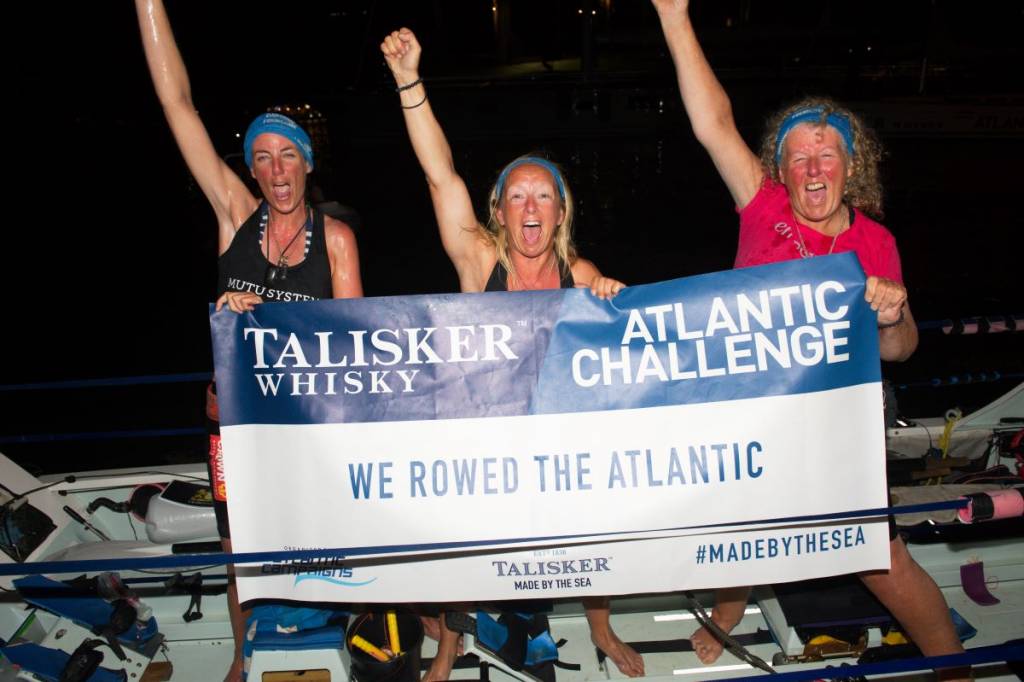
Mo (right) made history as the first deaf person to row across the Atlantic

